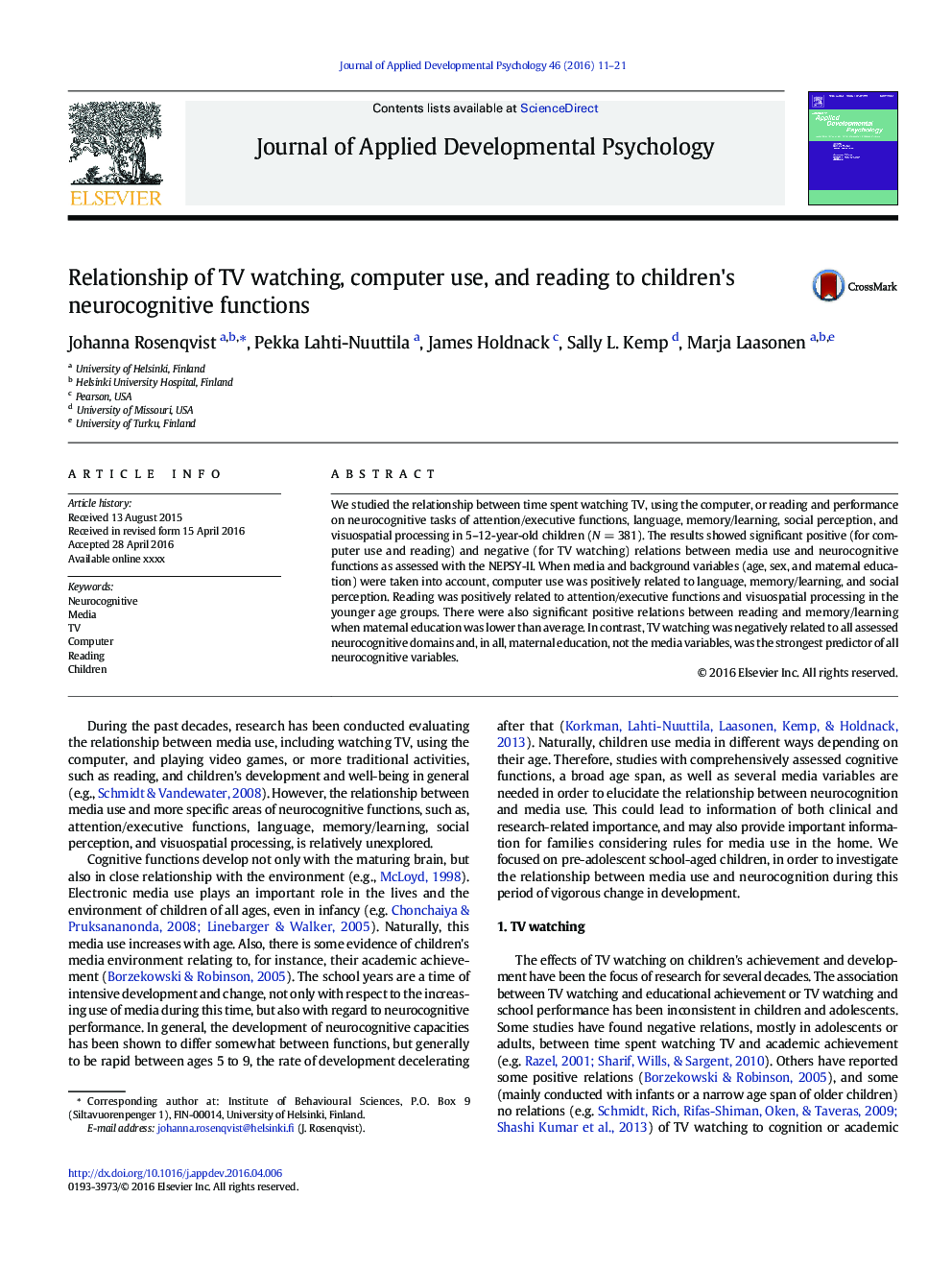| کد مقاله | کد نشریه | سال انتشار | مقاله انگلیسی | نسخه تمام متن |
|---|---|---|---|---|
| 359582 | 620256 | 2016 | 11 صفحه PDF | دانلود رایگان |
• We studied the relationship between media use and neurocognitive performance.
• TV watching was negatively related to neurocognition.
• Computer use was positively related to neurocognition.
• Reading was positively related to neurocognition in younger children.
• Maternal education was the strongest predictor.
We studied the relationship between time spent watching TV, using the computer, or reading and performance on neurocognitive tasks of attention/executive functions, language, memory/learning, social perception, and visuospatial processing in 5–12-year-old children (N = 381). The results showed significant positive (for computer use and reading) and negative (for TV watching) relations between media use and neurocognitive functions as assessed with the NEPSY-II. When media and background variables (age, sex, and maternal education) were taken into account, computer use was positively related to language, memory/learning, and social perception. Reading was positively related to attention/executive functions and visuospatial processing in the younger age groups. There were also significant positive relations between reading and memory/learning when maternal education was lower than average. In contrast, TV watching was negatively related to all assessed neurocognitive domains and, in all, maternal education, not the media variables, was the strongest predictor of all neurocognitive variables.
Journal: Journal of Applied Developmental Psychology - Volume 46, September–October 2016, Pages 11–21
